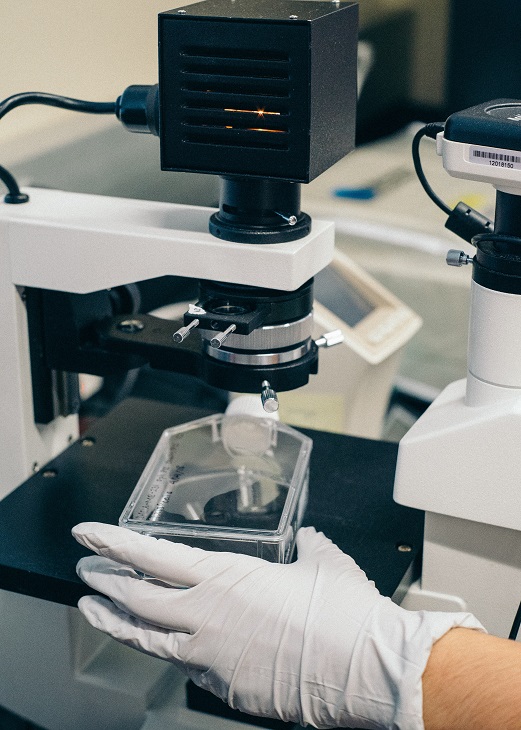THE DAILY DOSE
How NAD+ Affects The Energy Metabolism

The body relies on a symbiotic set of processes for optimal health. When all systems are working together, the body runs smoothly. When they do not, chronic health issues can arise, such as fatigue and inflammation.
The metabolism is the system that converts nutrients from food into energy, and it relies heavily on NAD+ to help it function properly. NAD+ helps by activating sirtuins, which are proteins that contribute to the regulation of cellular health. It also assists with metabolic function by encouraging mitochondrial fitness and essentially rewiring the metabolism to function as it should. But what is NAD+, exactly? Let’s find out more about this compound and how NAD+ affects the energy metabolism.

What is NAD+?
Nicotinamide adenine dinucleotide (NAD+) is a chemical compound within the body that works to support the health of cells. It is classified as a dinucleotide because it consists of two nucleotides joined through phosphate groups, with one containing an adenine base while the other contains nicotinamide.
Vitamin B3 is considered to be a precursor to NAD+. When the vitamin is converted into NAD+ it contributes to the process of converting food into energy, repairing DNA, strengthening cell defense, and regulating circadian rhythm. It is not difficult to get enough vitamin B3 for NAD+ biosynthesis, and it’s been found that less than 20 mg of niacin per day is enough to keep up with the body’s demand.
In people with deficiencies of vitamin B3, NAD+ levels can suffer. However, there are a few other substrates for NAD+ pathways that can help stimulate synthesis, including the amino acid tryptophan, nicotinamide riboside, and nicotinamide mononucleotide.
While the body ages, levels of NAD+ decline, thus making a person more susceptible to age-related conditions and other health issues that can arise when the metabolism isn’t at its best. Some conditions that have been linked to declining levels of NAD+ in the body include heart disease, diabetes, and Alzheimer’s disease.
Why is NAD+ so important?
Cells need both hydrogen and electrons to produce and store energy. NAD+ is the molecule that carries electrons and hydrogen to the cells so that the process of creating energy can continue through its reduced form known as NADH. NADH is the molecule that takes electrons from NAD+ and then gives them to other cells so that they can perform cellular processes. Without NAD+ and other electron carriers within the body, the cells would not be able to produce and store the energy, leading to fatigue on a cellular level.
In terms of other cellular processes such as DNA damage repair, NAD+ is needed to help restore healthy levels of DNA. If the body becomes depleted of NAD+, as it does with age, DNA cannot be repaired as it should be. It can also become depleted in cases of obesity or if the body is not receiving the required nutrients it needs. Metabolic disorders such as fatty liver disease and diabetes have been closely linked with depleted levels of NAD+. The good news is that if a person receives precursors of NAD+, optimal levels can be restored, which could help prevent metabolic diseases.
What is the role of NAD+ in metabolism?
NAD+ plays a vital role in oxidation reactions that contribute to metabolism. It is a contributing part of several different metabolism pathways, such as breaking down glucose for energy, oxidizing nutrients for optimal energy release, and the breakdown of fatty acids to produce energy. The energy metabolism is greatly affected by these processes, as it needs them to occur to help distribute energy throughout the entire body.
How do you raise your NAD+ levels?
The best way to ensure that you have optimal levels of NAD+ is by ingesting one of the precursors to aid in synthetization. Perhaps one of the most common nutritional supplements to take to help encourage NAD+ production is vitamin B3.
Human trials have found that increasing intake of vitamin B3 led to increased levels of NAD+ in muscles by three times the amount prior to taking the vitamin. Getting B3 through diet is the best way to utilize it as a NAD+ precursor; it can be found in high amounts in fish, peanuts, and avocados.
Some research has also shown that getting more exercise can increase levels of NAD+. This is because when the body uses more energy, it needs to create more. However, it should be noted that if there is not enough of a NAD+ precursor in the body to aid in the production of the molecule, exercising may not help to increase levels.

Does NAD+ give you energy?
Since NAD+ is a vital component to energy levels, it can be said that it helps the body create energy. The molecule itself doesn’t necessarily give you energy, though. It is needed for cellular processes that encourage the metabolism to function as it should, thus dispersing energy throughout the body.
Synapsins are proteins that help maintain healthy levels of NAD+, and thus are important for overall energy production. Vital RX’s Fitness and Energy Subscription boxes contain synapsin so that stores of NAD+ are kept at their most optimal, leading to an overall healthy level of energy and metabolic function. NAD+ is a key player in energy production, and keeping levels up can be as easy as adding a few things to your diet and supplementing with the right products.
Featured image by Aditya Saxena on Unsplash